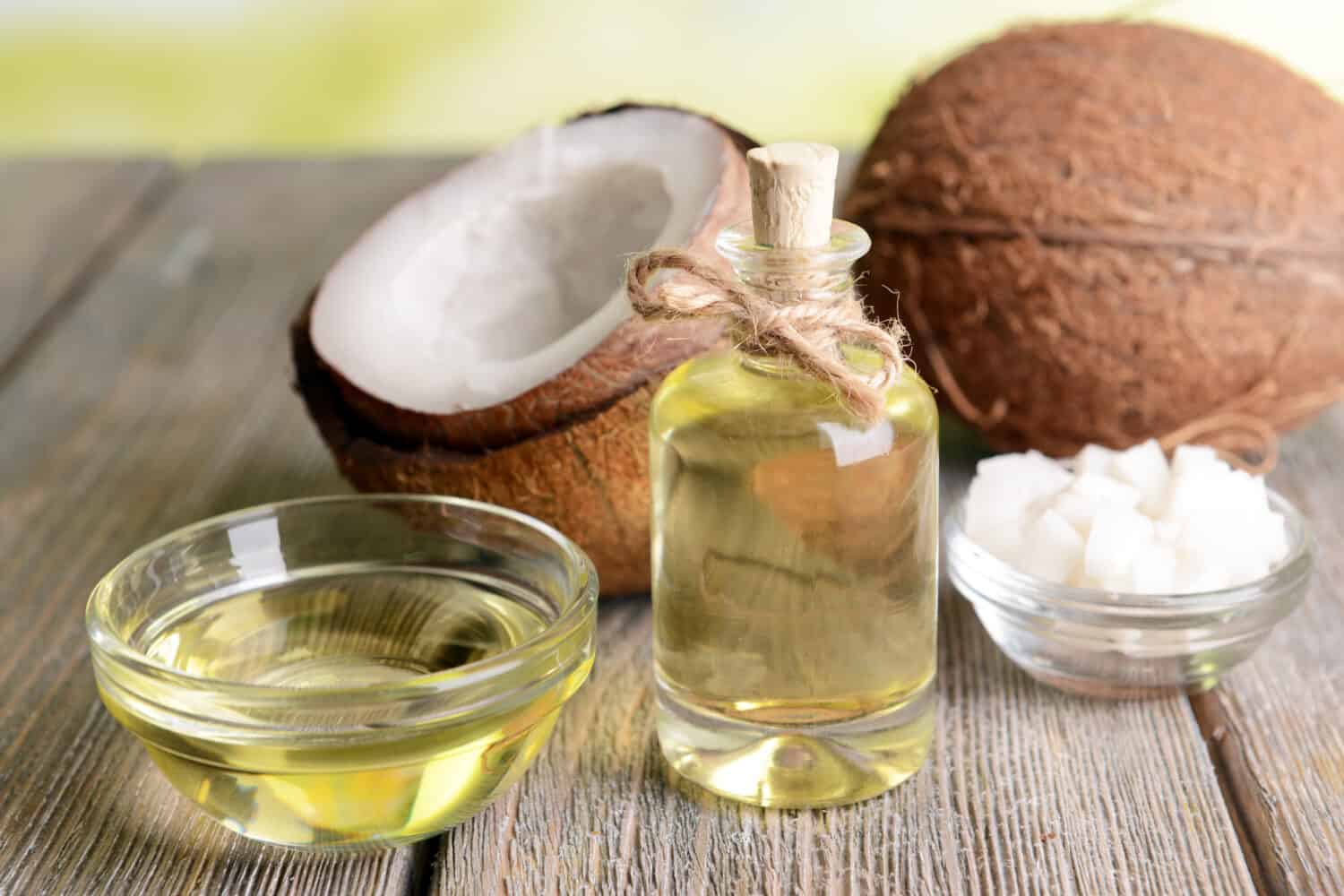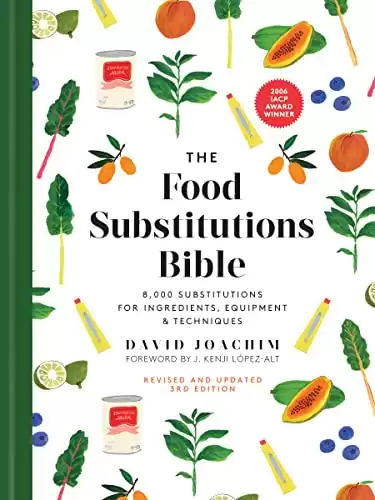What sets refined and unrefined coconut oil apart? While both are used in cooking and around the home, they have different tastes, smells, and uses. Refined and unrefined coconut oil undergoes different production processes, producing two distinct versions of oil.
Understanding the distinctions between refined and unrefined coconut oil will help you choose the best product. The key thing to remember is that unrefined coconut oil is less processed and more natural whereas refined coconut oil is more neutral and heat resistant. Let us explore the key differences between refined vs. unrefined coconut oil in greater detail.
Refined vs. Unrefined Coconut Oil: Key Differences
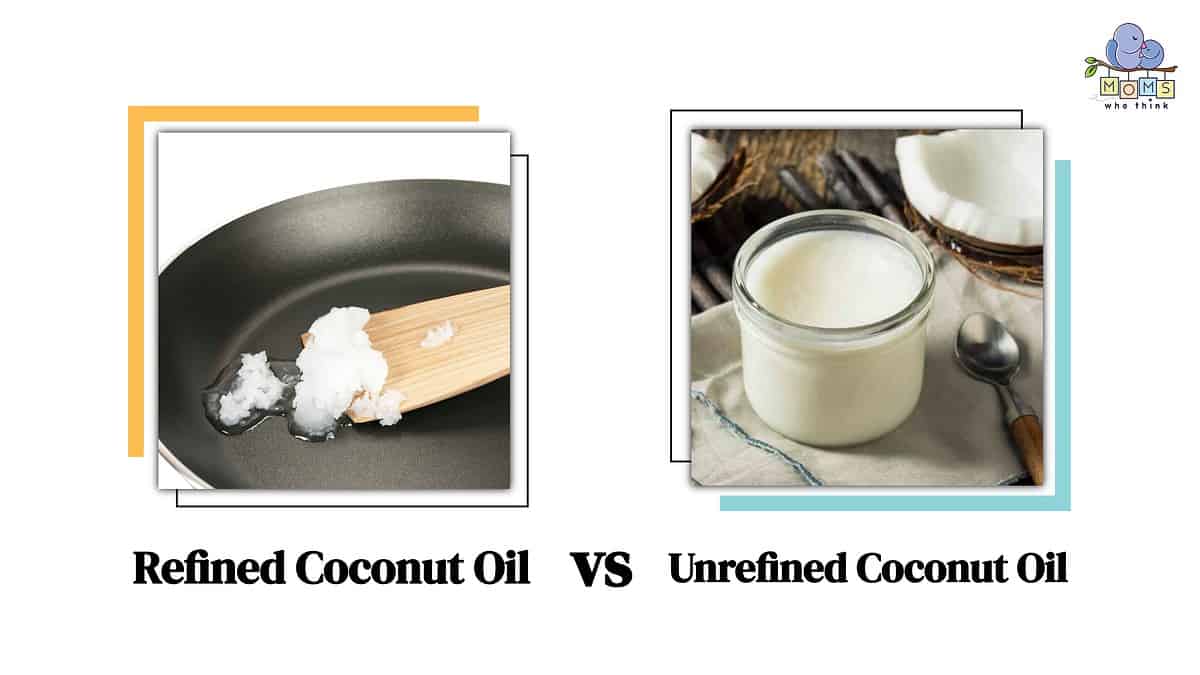
Why is it important to know the differences between these oils? If cooking with coconut oil, refined and unrefined oil have different smoke points and culinary applications. Perhaps you are adding coconut oil to your beauty routine or household cleaning products. Knowing the difference between refined and unrefined coconut oil will help you choose the oil that matches your personal preferences.
- The must-have convenient reference guide for every home cook!
- Includes more than 8,000 substitutions for ingredients, cookware, and techniques.
- Save time and money on by avoiding trips to grab that "missing" ingredient you don't really need.
| Unrefined Coconut Oil | Refined Coconut Oil | |
|---|---|---|
| Production Process | “Virgin” or “extra virgin” coconut oil, as it is also called, is typically extracted by cold pressing or centrifugation. | Refined oil goes through an involved process that includes bleaching to remove impurities. This process also strips some of the natural flavor and aroma. Refined coconut oil is more neutral in taste and smell. |
| Flavor and Aroma | This oil keeps its natural coconut flavor and strong smell, which makes it especially useful in tropical and Asian cuisines. | Since the production process removes much of its natural taste and smell, it is a better choice for recipes where you don't want the coconut oil to dominate the dish. |
| Nutrition | While their nutritional profiles are remarkably similar, the unrefined oil tends to retain more antioxidants. | The production process may sometimes strip some of the nutrients from refined oil. |
| Smoke Point | This oil smokes at lower temperatures. Sautéing, baking, and other low-heat cooking are best with unrefined oil. | Because the impurities are removed, refined coconut oil smokes at a much higher temperature, making it better suited for frying. |
| Cosmetic Uses | Unrefined oil's natural smell and moisturizing benefits make it a popular choice in hair and skin care. | Refined oil can also be used in beauty applications. People who prefer unscented products tend to use refined coconut oil as part of their beauty routine. |
| Cost and Availability | The unrefined oil has a shorter shelf life. It is also more expensive. | Refined oil lasts longer and is typically cheaper than its counterpart. |
Refined vs. Unrefined Coconut Oil: How are they different?
Despite having the same nutrients, refined and unrefined coconut oil are very different. Of the two, unrefined coconut oil undergoes the least processing. Additionally, it has a strong coconut flavor and a low smoke point. In contrast, refined coconut oil withstands higher cooking temperatures and has a milder flavor overall. Here is an overview of how the two types of oil are produced.
Unrefined Coconut Oil Production
Pressed from coconut meat, unrefined coconut oil, also known as “virgin” or “extra virgin” coconut oil, undergoes one of two processes during extraction.
- Dry – In the dry production method, a machine presses the oil out of dried coconut meat, also known as copra. This technique is popular in coconut-rich regions. However, the dry method tends to produce lower-quality oil because the coconut meat has a tendency to become contaminated during the drying phase.
- Wet – The wet method removes both coconut oil and milk from two fresh coconuts and then separates them. A machine press or a centrifuge machine separates the oil in this production method. Wet processing typically produces a higher-quality oil.
Refined Coconut Oil Production
The production of refined coconut oil is far more complicated. After the extraction process, refined oil goes through the following steps.
- Degumming – To remove impurities, unrefined coconut oil is heated and mixed with water. The oil is then skimmed off.
- Neutralization -An alkali solution treats the oil and removes any fatty acid that might make the oil go bad. The alkali-treated oil is washed to remove any residual chemicals.
- Bleaching – The oil runs through a filter to remove color pigments and impurities.
- Deodorization – Producers heat the oil one more time to remove any lingering bad smells.
The goal of this process is to create an oil with a neutral flavor and longer shelf life. While it removes more of the impurities found in unrefined coconut oil, refined coconut oil processing also removes many of the nutrients and minerals. However, refined coconut is better for cooking dishes at higher temperatures like frying or roasting.
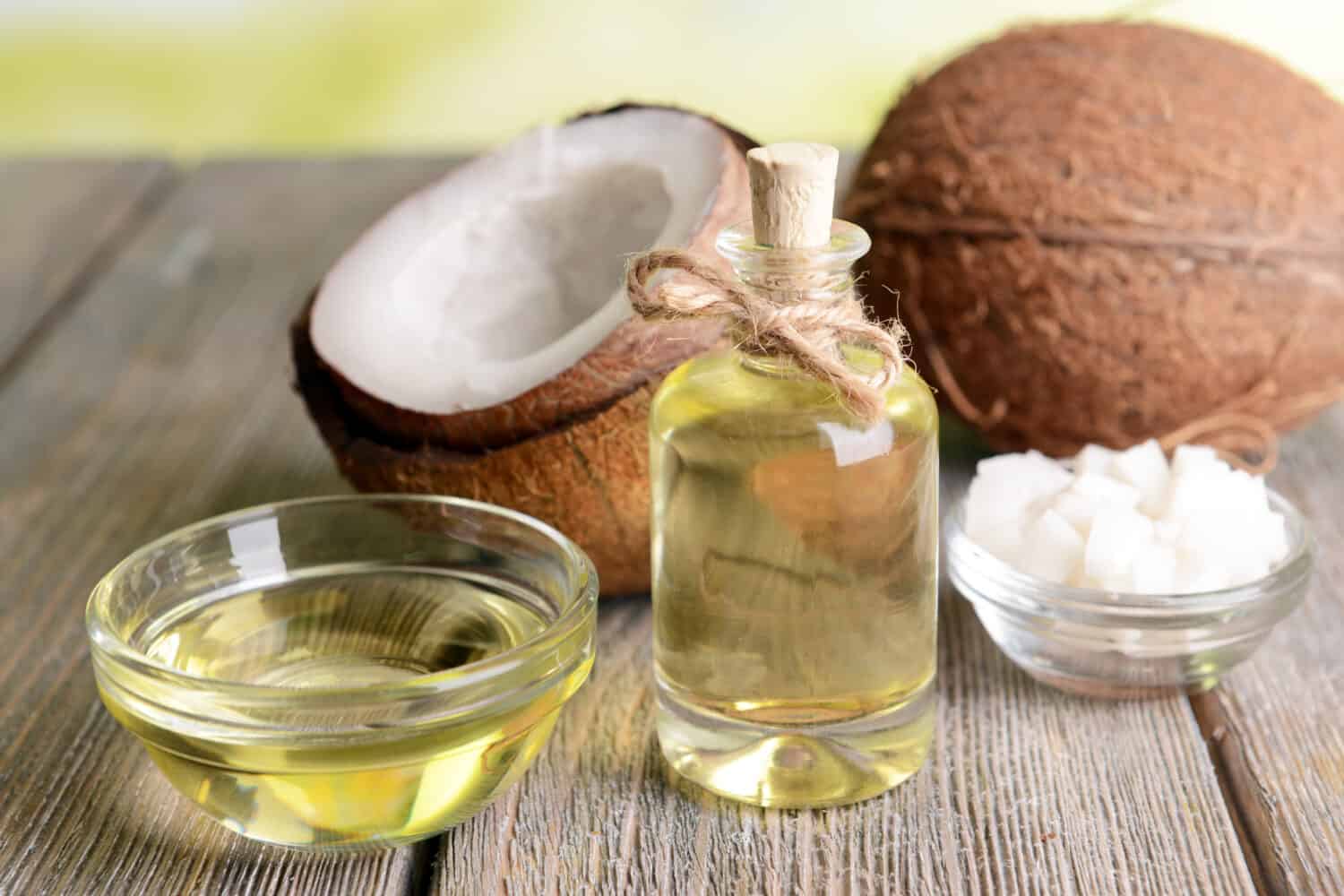
©Africa Studio/Shutterstock.com
Refined vs. Unrefined Coconut Oil: Nutritional Information
Coconut oil is touted as a “healthy oil” to use in cooking. However, in recent years, this claim has been the subject of much debate and research, particularly because coconut oil has a lot of calories and saturated fat. The scientific community splits on the health benefits of this oil. While some maintain it is better than other oils and offers potential health benefits, others raise concerns about coconut oil's impact on cholesterol and heart health. Ultimately, moderation is the key. These oils have almost identical nutritional profiles. Enjoy both as part of a healthy and well-rounded diet.
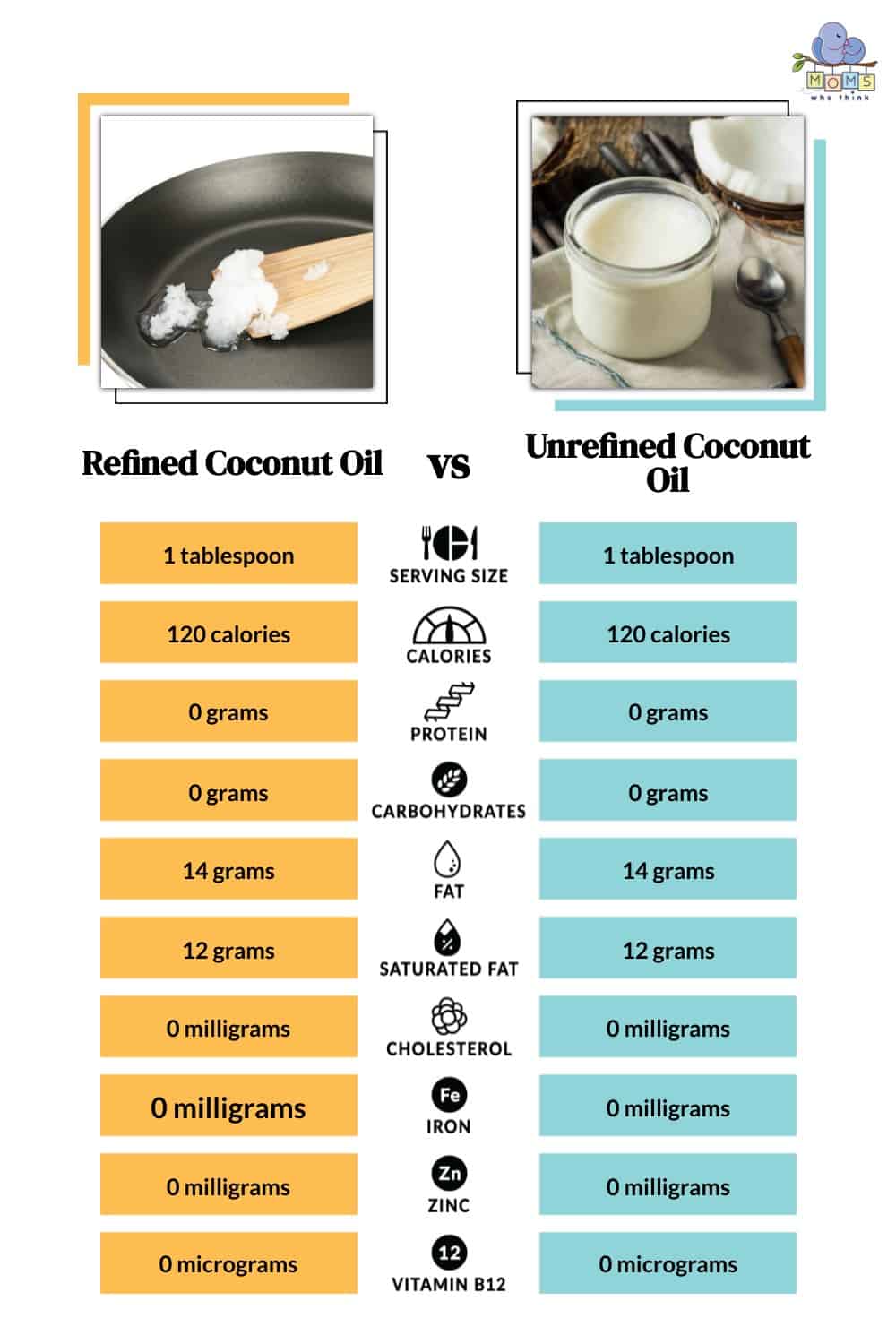
Refined vs. Unrefined Coconut Oil: How are they used?
Baking and Cooking
Both kinds of oil are vegan-friendly substitutes for butter. If you want less of a coconut taste in your recipes, use refined coconut oil because unrefined coconut oil will overpower other flavors. Refined coconut oil, which has a smoke point of 400-600 degrees Fahrenheit, is also better for frying because it can withstand hotter temperatures. Unrefined coconut oil is great for recipes with a strong coconut taste like curries or soups.
Health and Beauty
Dermatologists suggest using unrefined coconut oil, particularly cold-pressed oil, for skin care. Coconut oil contains lauric acid, which has antibacterial benefits and adds moisture to skin and hair. Here are more ways to add coconut oil to your beauty routine.
- Moisturizer – Unrefined coconut oil is a great moisturizer because its fatty acids lock in moisture. In addition to skin and hair, use this oil as a lip balm.
- Makeup Remover – Use coconut oil to gently remove makeup, including mascara.
- Body Scrub – Combine the oil with sugar or salt to create a moisturizing bath scrub.
- Hair Conditioner – Apply the oil to the ends of your hair to prevent split ends. It also reduces frizz and increases shine. Coconut oil is also a deep-conditioning hair mask. Apply it to your hair and leave it on overnight or for a few hours with a shower cap.
- Shaving Cream – Use as a shaving cream alternative for a smooth, moisturizing shave.
- Eczema and Psoriasis – The oil's moisture provides relief for the dry, itchy skin associated with both of these skin conditions.
If you have sensitive skin or allergies, always perform a patch test to ensure you don't have an adverse reaction to the oil. High-quality, unrefined coconut oil is the best choice for beauty uses.
- The must-have convenient reference guide for every home cook!
- Includes more than 8,000 substitutions for ingredients, cookware, and techniques.
- Save time and money on by avoiding trips to grab that "missing" ingredient you don't really need.

©BLACKDAY/Shutterstock.com
Household Uses
Use coconut oil around the home, too. Here are some ways to incorporate coconut oil into your home routine.
- Candle Making – Coconut oil is a base for making homemade candles.
- Leather conditioner – Use coconut oil to moisturize leather items, such as shoes and belts.
- Wood Polish – Apply to a soft cloth and use coconut oil to polish and protect your furniture.
- Bathroom Cleaner – Combine baking soda with coconut oil to make an all-natural bathroom cleaner.
- Stain and Label Remover – Coconut oil is effective at removing sticker residue and paint and crayon stains.
Always test the oil on a small area before using it on a larger surface to make sure it does not do any damage to furniture or finishes. When used properly, coconut oil is a versatile household tool to keep in stock.
One Final Note
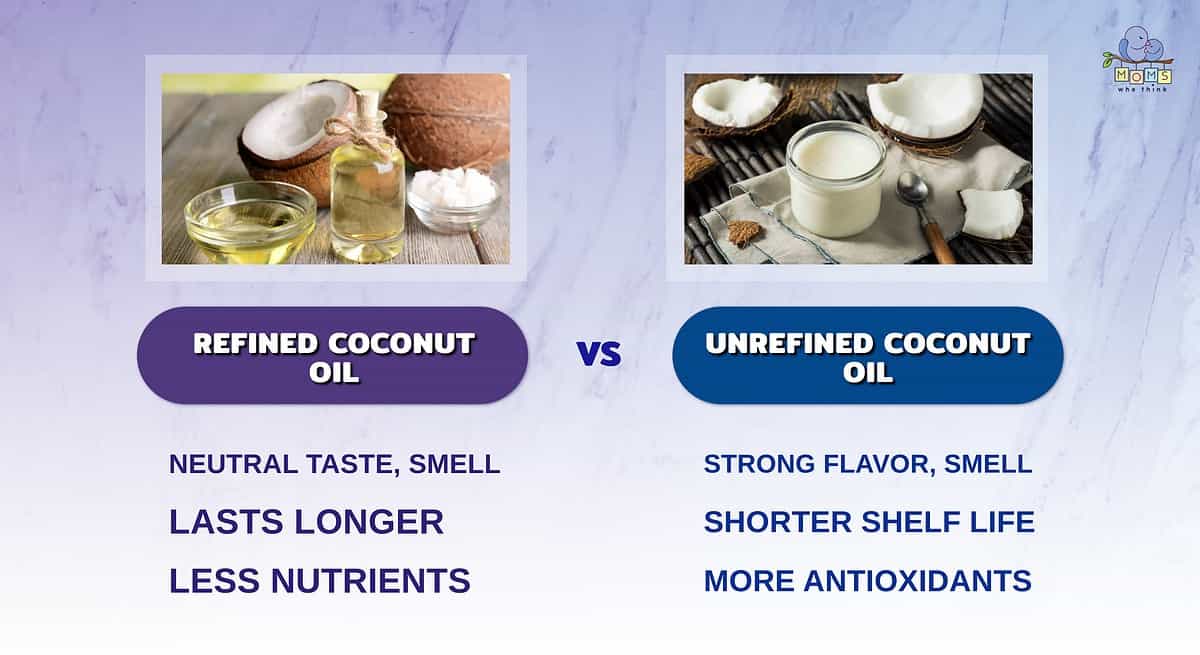
It may come as a surprise, but not all coconut oil is created equal. Let's do a quick recap of this article and break down the difference between refined and unrefined coconut oil:
- Because of the production process, refined coconut oil has a longer than that of unrefined coconut oil.
- Unrefined coconut oil is great in tropical and Asian dishes. On the other hand, refined coconut oil is better in recipes where coconut oil doesn't dominate the dish.
- Unrefined coconut oil is extracted by cold pressing or centrifugation, while refined oil goes through a process including bleaching to remove impurities.
Unrefined coconut oil, extracted from coconuts with little processing, is great for recipes that benefit from its strong coconut smell and flavor. It is also extremely useful in the household, particularly if you are considering a natural beauty routine. Use unrefined or refined coconut oil on the skin and hair to add moisture and relieve itchy, dry skin.
On the other hand, refined coconut oil offers a longer shelf life than the unrefined version. It is also better for cooking, especially when frying or roasting food. Additionally, use refined oil in household applications like wood polish and bathroom cleaner. While the debate about its healthiness goes on, use it in moderation and as part of a well-rounded and healthy diet.
Print
Simple Coconut Cookies with coconut oil
Ingredients
- 1/2 cup coconut oil
- 1 cup + 1 tablespoon brown sugar, packed
- 2 large eggs
- 1 tablespoon pure vanilla extract
- 1 3/4 cups all-purpose flour
- 1/2 teaspoon salt
- 1 teaspoon baking powder
- 1/4 teaspoon baking soda
- 1 1/2 cups butterscotch chips
- 1 cup shredded coconut, toasted
Instructions
- Preheat oven to 375 degrees Fahrenheit and prepare a baking sheet with cooking spray or parchment paper.
- In a large mixing bowl, beat coconut oil and brown sugar until thoroughly mixed.
- Slowly add the eggs to the mixture and beat until fluffy. Then, add vanilla extract.
- In a separate medium bowl, combine flour, baking powder, baking soda, and salt with a whisk.
- Gradually mix the flour mixture into the coconut oil mixture with a wooden spoon until the flour is well mixed.
- Add in the butterscotch chips and coconut and mix well.
- Drop by the spoonful into the baking sheets. Bake for 8 minutes or until slightly browned around the edges.
- Method: Baking
- Cuisine: American
The image featured at the top of this post is ©Africa Studio/Shutterstock.com.
- The must-have convenient reference guide for every home cook!
- Includes more than 8,000 substitutions for ingredients, cookware, and techniques.
- Save time and money on by avoiding trips to grab that "missing" ingredient you don't really need.
